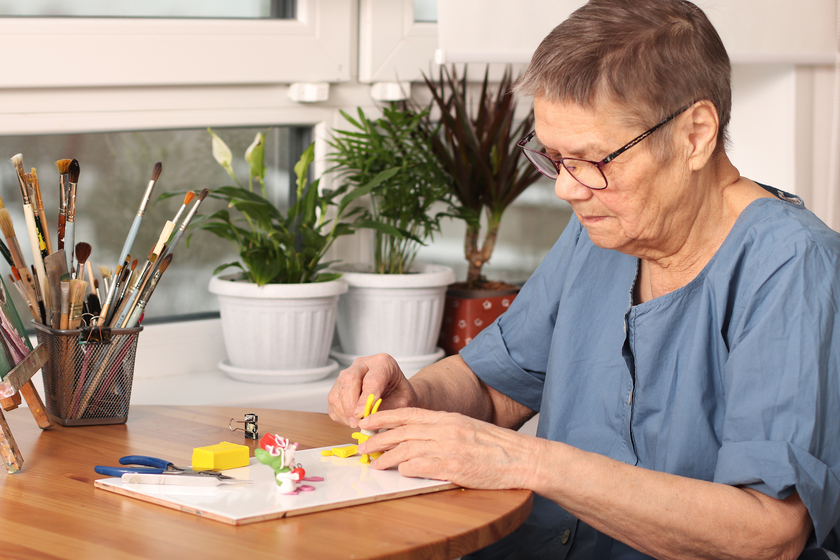All About Memory Treatment Solutions: Why Small Memory Care Homes Are an Excellent Choice
Memory care solutions play a necessary role in sustaining individuals with Alzheimer's and dementia. Little memory care homes attract attention for their personalized strategy and intimate setup. With lower staff-to-resident proportions, these homes promote more powerful links and tailored care. Homeowners benefit from enhanced social communications and a safe atmosphere. As families explore alternatives, recognizing the special advantages of tiny memory care homes comes to be important. What elements should be taken into consideration when picking the best home?
Recognizing Memory Care Services
While many may know with general elderly care choices, recognizing memory treatment services is necessary for family members facing the obstacles of cognitive decrease. Memory treatment especially provides to people with conditions such as Alzheimer's illness and other types of mental deterioration. These services provide an organized atmosphere that focuses on enhancing the lifestyle for homeowners through specialized care and support.Memory treatment facilities are developed to guarantee security and security, often featuring secured settings to avoid wandering. Trained staff members are offered around the clock to aid with everyday tasks, drug monitoring, and personal care. In addition, memory treatment programs frequently include cognitive stimulation activities, customized to involve citizens and promote mental wellness. Families can benefit from recognizing these solutions, as they enable notified choices regarding their liked ones' care, ensuring that their specific requirements and choices are attended to in a caring and encouraging fashion.
The Advantages of Tiny Memory Care Homes
Little memory care homes provide distinctive benefits that can considerably enhance the lifestyle for locals with cognitive impairments. One substantial advantage is the intimate atmosphere, which enables for individualized communications among staff and homeowners. This smaller setting fosters meaningful relationships, decreasing sensations of seclusion and anxiousness often experienced by individuals with memory issues.Additionally, the reduced staff-to-resident ratio in tiny memory care homes makes it possible for caretakers to provide even more alert guidance and support. This technique not only boosts safety however likewise advertises a feeling of protection for the residents.Moreover, little memory treatment homes can adjust promptly to the unique requirements and preferences of each local, allowing for a more homey environment. Such a setting can motivate social involvement and participation in tasks, inevitably enriching the everyday experiences of those dealing with cognitive problems.
Personalized Care Program for Locals
Personalized care strategies are vital in memory care homes, as they satisfy the unique demands and preferences of each resident. These strategies start with detailed evaluations conducted by skilled professionals, that evaluate cognitive capabilities, medical background, and individual rate of interests. This customized technique assurances that care is not just effective but also respectful of each individual's dignity and autonomy.Moreover, customized care strategies are flexible, permitting adjustments as citizens' demands evolve over time. This flexibility cultivates a complacency and experience, which is necessary for people living with memory challenges. Caregivers are trained to execute these plans consistently, offering assistance that straightens with the residents' regimens and preferences.Ultimately, individualized treatment strategies enhance the top quality of life for locals by advertising independence, wellness, and involvement, making them an essential facet of memory care solutions in little memory treatment homes.
Developing a Home-Like Environment
Producing a home-like atmosphere is important for promoting comfort and knowledge in memory treatment settings, as it considerably influences homeowners' emotional health. Tiny memory treatment homes often prioritize personalized touches, such as cozy shade schemes, family photos, and acquainted furnishings setups, which help residents really feel a lot more secure. Including components evocative a traditional home, like relaxing living spaces and communal locations, urges a sense of belonging.Moreover, making use of all-natural light and exterior rooms can improve the environment, promoting relaxation and peace. Employee play a substantial role in preserving this setting by involving with locals in a thoughtful manner, treating them like family. Regular activities, such as cooking or horticulture, can likewise add to a home-like feel, providing opportunities for citizens to take part in significant experiences. On the whole, creating a nurturing environment supports cognitive function and psychological security, making it a vital aspect of memory treatment solutions.
Improved Social Communication and Area
Improved social communication and neighborhood are essential components of memory care services. By fostering customized social interaction and developing a family-like ambience, these solutions advertise meaningful connections amongst citizens. Group events and activities better encourage involvement, assisting people feel a lot more consisted of and supported.
Personalized Social Interaction
While social communication is important for total health, several individuals with memory problems typically struggle to involve meaningfully with others. Personalized social involvement in memory treatment homes addresses this obstacle by developing customized activities that satisfy residents' one-of-a-kind rate of interests and abilities. By concentrating on private preferences, caretakers can cultivate links that reverberate deeply with each person. Activities such as art treatment, music sessions, and directed conversations promote cognitive stimulation and psychological expression. In addition, little group setups encourage friendship and permit more intimate interactions, enhancing sensations of belonging. This method not only deals with feelings of seclusion however likewise empowers residents to maintain a feeling of identification, inevitably contributing to enhanced mental health and wellness and lifestyle.
Family-like Atmosphere
In a memory care setup, promoting a family-like environment significantly enhances social interaction and builds a sense of area among citizens. Smaller memory care homes typically focus on intimate settings, allowing homeowners to develop closer links with one an additional and team member. This nurturing atmosphere YOURURL.com advertises count on, which is vital for individuals with memory disabilities. Citizens are a lot more most likely to engage in discussions and share experiences, creating a helpful network that reduces sensations of isolation. The knowledge of common areas and routines adds to a sense of belonging, further encouraging social communication (personalized memory care). In such setups, psychological bonds flourish, leading to boosted general wellness and a higher top quality of life for residents as they navigate their daily experiences with each other
Group Activities and Occasions

Safety And Security and Safety And Security Features in Tiny Houses
Several small homes created for memory care incorporate essential safety and security and safety features to assure the well-being of citizens. These homes typically utilize safe and secure entrance and leave indicate protect against straying, a common problem among individuals with memory problems. Additionally, monitoring systems and alarm systems improve surveillance, ensuring that team can immediately reply to any uncommon activities.Interior layouts are tailored for safety, with minimized dangers such as sharp edges and clutter-free paths. Handrails and non-slip flooring are generally installed to lower the danger of falls. Team participants are learnt emergency situation protocols, ensuring they are planned for various situations.Moreover, personalized care plans may include analysis of specific safety and security needs, offering tailored services for each resident. On the whole, these security and security attributes develop a caring environment where homeowners can flourish while preserving their dignity and self-reliance.
Exactly how to Choose the Right Memory Care Home
Just how can households ensure they pick one of the most suitable memory care home for their enjoyed ones? The decision calls for mindful consideration of a number of factors. First, households should review the facility's staff certifications and training, guaranteeing that caretakers are experienced in managing memory-related conditions. Next, it's important to evaluate the home's environment, concentrating on safety and find out here security attributes and whether it promotes a sense of area and belonging. Visiting the facility can give insight into day-to-day tasks and the social atmosphere, which are essential for mental excitement and emotional well-being. Furthermore, family members ought to ask about the treatment strategies offered, ensuring they are customized to private demands. Considering the home's area and accessibility for household brows through can contribute to a smoother shift. By attending to these aspects, family members can make an enlightened choice that prioritizes their liked one's comfort and lifestyle in a memory treatment setup.
Regularly Asked Inquiries
What Certifications Should Team Members in Memory Treatment Residences Have?
Team member in memory care homes must have appropriate certifications, experience in dementia treatment, strong interaction skills, and concern. Continuous training in behavioral monitoring and healing treatments improves their capacity to sustain citizens efficiently.
Exactly How Do Memory Treatment Services Differ From Typical Assisted Living?
Memory care services concentrate specifically on people with memory disabilities, providing specific support and structured atmospheres. In comparison, typical assisted living uses general help with daily activities, doing not have the customized technique necessary for those with cognitive obstacles.
What Kinds of Tasks Are Used in Memory Treatment Houses?
Memory care homes normally supply a variety of tasks developed to involve residents. Usual choices include art treatment, music sessions, cognitive games, exercises, horticulture, and social events, all targeted at enhancing well-being and cognitive function.
Can Citizens Bring Their Own Valuables to Memory Treatment Residences?
Residents can generally bring their own possessions to memory care homes, enabling them to individualize their living area - personalized memory care. This practice assists create an acquainted setting, promoting convenience and a sense of identification for the individuals

Just How Are Relative Associated With the Treatment Process?
Relative play an essential role in the care process, typically joining decision-making, going to treatment conferences, and offering emotional assistance. Their participation cultivates a joint environment, boosting the citizen's general health and high quality of life. While many may be familiar with general elderly care choices, recognizing memory care services is necessary for households encountering the challenges of cognitive decrease. These services supply a structured setting that this page concentrates on improving the quality of life for locals via specialized treatment and support.Memory treatment centers are designed to assure security and protection, typically featuring secured settings to protect against straying. Individualized treatment strategies are important in memory treatment homes, as they provide to the distinct needs and preferences of each citizen. Personnel members in memory care homes need to have relevant qualifications, experience in mental deterioration care, strong interaction skills, and concern. Memory treatment solutions focus particularly on individuals with memory problems, providing customized support and structured environments.